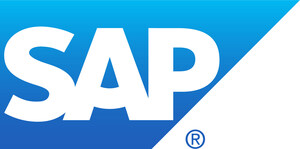
WALLDORF, Germany, Oct. 8, 2018 /PRNewswire/ -- Three out of four online shoppers worldwide fail to regularly see product recommendations that interest them, according to a global survey sponsored by SAP SE (NYSE: SAP). The findings were part of the SAP Customer Experience organizational unit's recent Consumer Propensity Study, aimed at gauging consumer attitudes to online shopping experiences. The study surveyed over 20,000 consumers in 24 countries, including Australia, Brazil, China, the United Kingdom and the United States.
When asked how often suggested recommendations actually interest them while shopping online, only 25 percent answered either "almost all the time" or "half the time." When broken down by region, only 6 percent of UK shoppers said that they regularly see relevant recommendations, with 14 percent in Japan and 17 percent in the United States sharing that sentiment.
"Providing personalized online shopping experiences is now more within reach for brands than ever," said Chris Hauca, head of Strategy and GTM (Go To Market) for SAP Commerce Cloud. "Yet, there's a striking gap in what consumers are seeing as they navigate online marketplaces. Brands too often miss the link that bridges consumer behavioral data — complete with context and intent — with the back-end supply chain. Having a 360-degree view of the customer will enable meaningful recommendations and unique shopping experiences — something organizations should have in mind as they enter the holiday shopping season."
Expenses that fall outside the purchase cost impact the online shopper journey, the study further showed. More than half (52 percent) of respondents said they were willing to abandon their shopping cart if the shipping costs are too high, according to the study. On the opposite end of the spectrum, 55 percent said they were significantly more likely to complete their online purchases if they received a discount or a product promotion deal.
Additional global insights from the survey include:
- UK shoppers are the most likely (15 percent) to have never seen a relevant product recommendation online.
- Korean shoppers are among the most likely to have purchased fashion products online (89 percent), followed closely by China and Germany (both 84 percent).
- Brazilian shoppers are the most likely (70 percent) to abandon their shopping cart if shipping costs are higher than expected. They are followed by Canadian shoppers (69 percent) and French shoppers (67 percent).
- UK shoppers most commonly (66 percent) cite "easy exchange or return services" as a major driver of better online shopping experiences. Russian shoppers, however, are more likely (60 percent) to cite comparison tools as a driver of positive online experiences.
- Over half of Thai shoppers (51 percent) believe that online retailers should have virtual/augmented reality technologies that allow them to see what the product will look like in real life.
For more information, see this infographic.
Visit the SAP News Center, or find more information on solutions from SAP Customer Experience.
Follow SAP on Twitter at @sapnews.
About SAP
As market leader in enterprise application software, SAP (NYSE: SAP) helps companies of all sizes and industries run better. From back office to boardroom, warehouse to storefront, desktop to mobile device – SAP empowers people and organizations to work together more efficiently and use business insight more effectively to stay ahead of the competition. SAP applications and services enable more than 404,000 business and public-sector customers to operate profitably, adapt continuously, and grow sustainably. For more information, visit www.sap.com.
Any statements contained in this document that are not historical facts are forward-looking statements as defined in the U.S. Private Securities Litigation Reform Act of 1995. Words such as "anticipate," "believe," "estimate," "expect," "forecast," "intend," "may," "plan," "project," "predict," "should" and "will" and similar expressions as they relate to SAP are intended to identify such forward-looking statements. SAP undertakes no obligation to publicly update or revise any forward-looking statements. All forward-looking statements are subject to various risks and uncertainties that could cause actual results to differ materially from expectations. The factors that could affect SAP's future financial results are discussed more fully in SAP's filings with the U.S. Securities and Exchange Commission ("SEC"), including SAP's most recent Annual Report on Form 20-F filed with the SEC. Readers are cautioned not to place undue reliance on these forward-looking statements, which speak only as of their dates.
© 2018 SAP SE. All rights reserved.
SAP and other SAP products and services mentioned herein as well as their respective logos are trademarks or registered trademarks of SAP SE in Germany and other countries. Please see https://www.sap.com/copyright for additional trademark information and notices.
For customers interested in learning more about SAP products:
Global Customer Center: +49 180 534-34-24
United States Only: 1 (800) 872-1SAP (1-800-872-1727)
For more information, press only:
Michael Baxter, SAP, +49 151 1719 6185, [email protected], CET
SAP News Center press room; [email protected]
Nikki Festa or Jenny Radloff, PAN Communications, +1 (617) 502-4300, [email protected], ET
Please consider our privacy policy. If you received this press release in your e-mail and you wish to unsubscribe to our mailing list please contact [email protected] and write Unsubscribe in the subject line.
SOURCE SAP SE






Share this article